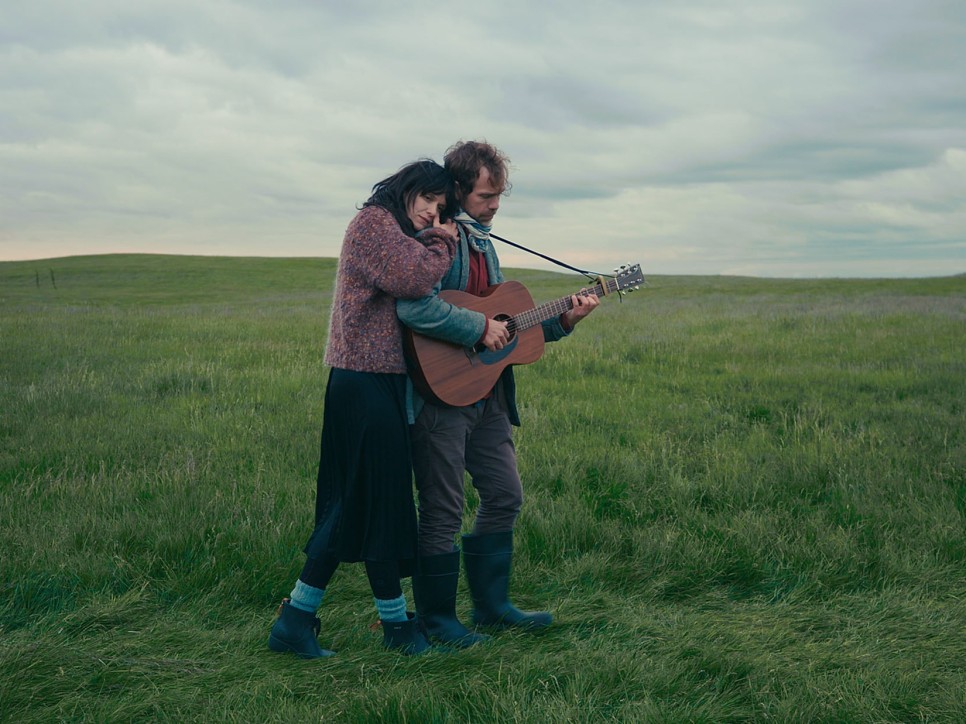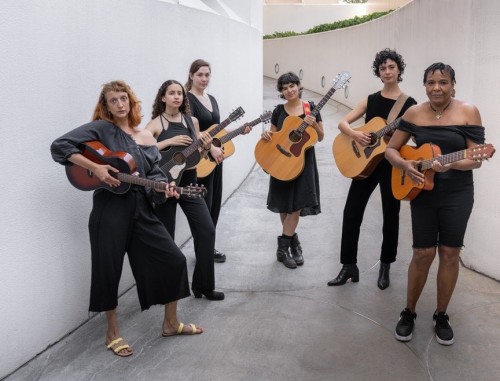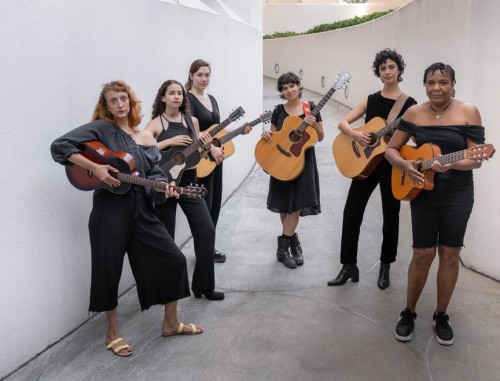

Performers from “Romantic Songs of the Patriarchy.” From left to right: Anna J Witiuk, Rose Stoller, Alex Koi, Miriam Elhajli, Katie Martucci, and Felice Rosser. David Heald © Solomon R. Guggenheim Foundation, 2021.
Ragnar Kjartansson’s second installment of “Romantic Songs for the Patriarchy” prompts a personal reckoning for the artist.
In 1943, Hilla Rebay asked Frank Lloyd Wright to design a “temple for the spirit” to house Solomon R. Guggenheim’s art collection; this weekend, a feminist performance piece by the artist Ragnar Kjartansson will transform the museum into a deceptively gorgeous “church of pain.” Stationed throughout the building’s iconic rotunda are female and nonbinary musicians performing an ethereal patchwork of acoustic pop songs, all arranged in the same key to sonically complement each other. But step closer and the lyrics come into focus: “You let me violate you / You let me desecrate you” or “I'm pulling you close / You just say no / You say you don't like it / But girl I know you're a liar.”
This is the second iteration of “Romantic Songs of the Patriarchy,” a 2018 work by Kjartansson, the Icelandic artist best known for his video installation “The Visitors,” which the Guardian named the best art piece of the 21st century. Formally, “Romantic Songs of the Patriarchy” is an exercise in recontextualization; songs like The Rolling Stones’ “Under My Thumb” and Neil Diamond’s “Girl, You’ll Be a Woman Soon” really do take on a new meaning when people who could be the songs’ subjects sing them on repeat for 90 minutes at a time.
“When it becomes this dense atmosphere, I think that it really embodies what it feels like to be oppressed,” says musical director Kendra McKinley, who also performs in it. “It’s coming at you from every direction, these fragments of triggering words trailing in and out, and you can’t escape it.”
Read full article at wmagazine.com

